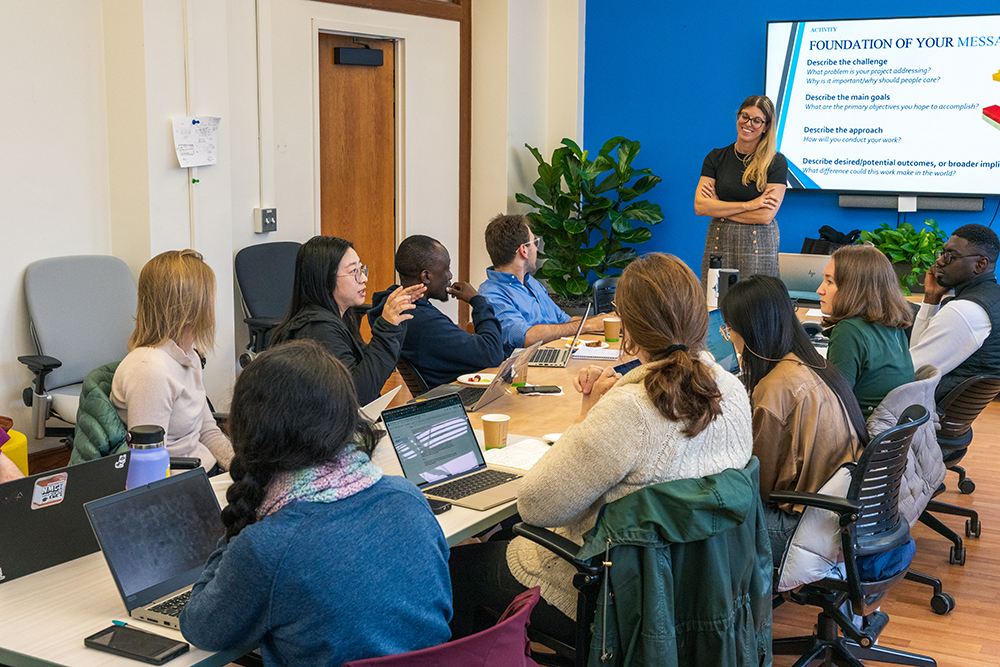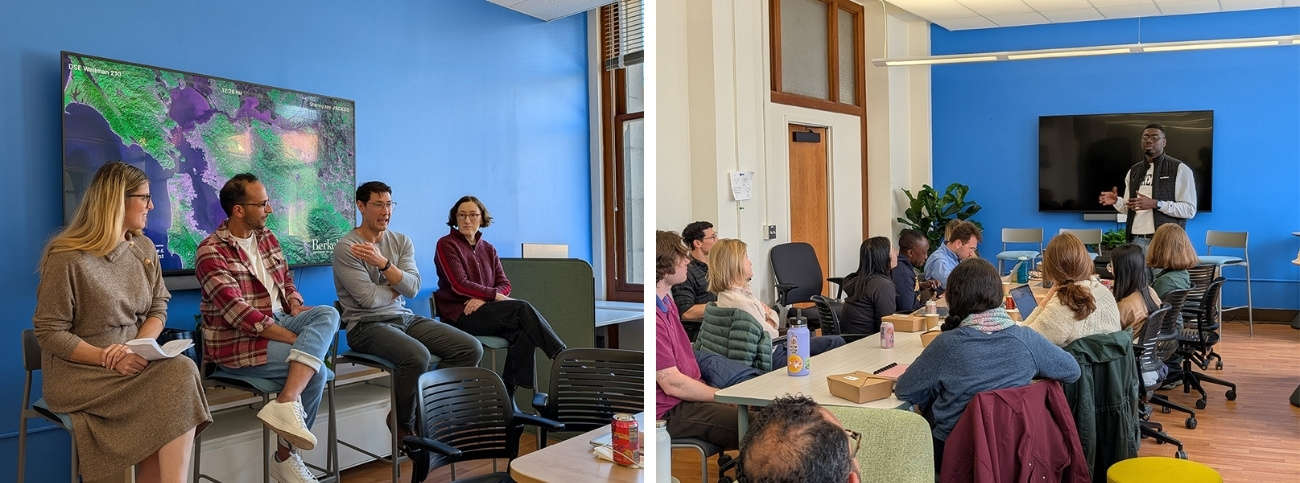
Dr. Carlie Wiener of Schmidt Sciences took students through the process of building a successful story that effectively communicates their research findings and real-world impact. Credit: Eric Xie, UC Berkeley College of Computing, Data Science, and Society
Last month the Eric and Wendy Schmidt Center for Data Science & Environment (DSE) hosted Dr. Carlie Wiener, Communications Director with Schmidt Sciences, who led a two-day communications workshop for early-career scientists on campus. The workshops brought in over 35 graduate students and postdoctoral researchers in programs such as the Department of Environmental Science, Policy, and Management, Computer Science, Integrative Biology, Public Health, and others.
Now is an extremely critical time for science communications. DSE—a part of Rausser College of Natural Resources and the College of Computing, Data Science, and Society—seeks to put cutting-edge environmental and data science into the hands of decision makers to help catalyze positive change.
Yet communicating science to diverse audiences can be challenging for researchers, who may be unsure of how to effectively disseminate their work to journalists, policy makers, advocates, and others.
Dr. Wiener shared strategies for how scientists can use storytelling to engage readers and maintain their interest, even if the reader does not have a scientific or technical background. Dr. Wiener walked through foundations for a compelling story, including the initial “hook” to grab someone’s attention, the real-world impact of their findings, and what makes this problem urgent or particularly significant right now.
Media Experts Weigh In: Video Content is Critical for Pitching Stories
Three science journalism experts joined Dr. Wiener for a panel discussion on best practices for working with the media: Kevin McLean (Science), Bigad Shaban (NBC), and Elizabeth Weise (USA Today). The journalists shared insights on what makes a successful pitch, including the importance of using imagery (particularly video content).

Left: Dr. Wiener, McLean, Shaban, and Weise speak on a panel. Right: Kwabena Owusu Sarfo, a Master’s student in the Energy Resources Group, describes his work on AI and energy use during a workshop on delivering an elevator pitch. DSE courtesy photos.
Attendees had the unique opportunity to practice pitching their research topics to the three panelists and subsequently received one-on-one feedback. Students’ work ranged widely, including using AI to predict heart failure, the reintroduction of sea otters to the San Francisco Bay, drinking water disparities in rural and urban communities, and deepfakes.
Feedback from Attendees: Workshops Were "Fantastic"
Students and postdocs who attended the workshops shared with DSE that the content was incredibly informative and inspiring. One participant commented that the workshop was “just the right balance of 'interactive' without being a huge lift in terms of workload during the course” and other noted that the event offered “very useful perspectives on how to go about presenting the ‘so what’ of my research, and putting it into decipherable language.”
“All of us at DSE are thankful to Dr. Wiener, Schmidt Sciences, Kevin, Bigad, and Elizabeth for this invaluable opportunity for our researchers,” said Kevin Koy, executive director of DSE. “We are energized that these scientists will be even more equipped to put their research into service for people and the planet after this workshop.
